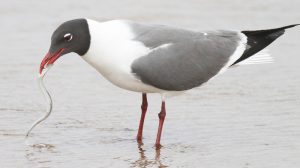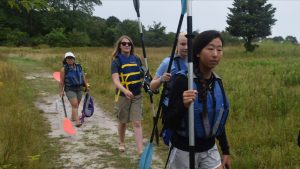Search results for: VIPREG2024 how to get 1xbet promo code Maldives
New Shoreline Change Data Reveal Massachusetts is Eroding
New Shoreline Change Data Reveal Massachusetts is Eroding Helpful to educators and students. O’Connell, J.F. Marine Extension Bulletin, 4 pp., 2003 WHOI-G-03-001
Read MoreWHOI-W-05-001 Whitlach, B. International Inv
WHOI-W-05-001 Whitlach, B. International Inv
Read MoreTeacher Workshop Oct. 2019
Carbon Cycling in Coastal Wetlands Presenters: Dr. Meagan Eagle Gonneea, Research Physical Scientist, Woods Hole Coastal and Marine Science Center, USGS Dr. Anne Giblin, Director, Ecosystems Center, Marine Biological Laboratory Please note: This workshop will take place at the Waquoit Bay National Estuarine Research Reserve (WBNERR), 131 Waquoit Highway, East Falmouth, MA 02536 Description: The…
Read MoreMay 3, 2019 Pollutants Workshop
Impacts of Human-derived Pollutants on the Coastal Environment Presenter: Dr. Chris Reddy, WHOI Marine Chemistry and Geochemistry Department – Using Discarded Shotgun Shells to Study the Fate of Plastics in the Environment Dr. John Stegeman, WHOI Biology Department – How Animals Deal with the Sea of Chemicals Date: May 2019 Lesson…
Read MoreThe Little Fish with a Big Impact
In the Gulf of Maine, there’s a little eel-like fish not much bigger than a large pencil, that buries itself in the sand in the summer and swims up and down in the water column in the spring and fall. It’s called a sand lance and it’s incredibly important to the ecosystem of the Gulf of Maine. If you like whale watching, this little fish is the biggest reason you might or might not see a whale:
Read MoreResearch on education: Learning by Listening to Marine Mammal Sounds
Learning by Listening to Marine Mammal Sounds Humpback whale photo courtesy of NOAA. Sept. 2018 — A Sea Grant-funded project aims to make science accessible to visually impaired students. Carla Curran, professor of marine sciences at Savannah State University, and Laela Sayigh, a biologist at Woods Hole Oceanographic Institution, worked with Kathy Patterson, the manager…
Read MorePerformance Requirements in Ocean Mineral Development
Performance Requirements in Ocean Mineral Development Hoagland, P. Marine Policy Reports, Vol. 9, No. 3, pp. 5-10, 1987 WHOI-R-87-001
Read MoreMy Girls in Science Experience – by Eugena Choi
Last February, when I heard about the Woods Hole Girls in Science program, I was excited. It combined my passion for conservation with marine biology, and I decided – on the spot – that I was going to go. I worked on my application for months before sending it in, and when I got the…
Read MoreWHOI-R-05-004 Bernhard, A. E. Loss of Divers
WHOI-R-05-004 Bernhard, A. E. Loss of Divers
Read MoreBeach and Dune Profiles: An Educational Tool for Observing and Comparing Dynamic Coastal Environments
Beach and Dune Profiles: An Educational Tool for Observing and Comparing Dynamic Coastal Environments Helpful to educators and students. WHOI Sea Grant Marine Extension Bulletin, 6 pp., 2001 WHOI-G-01-001
Read More

